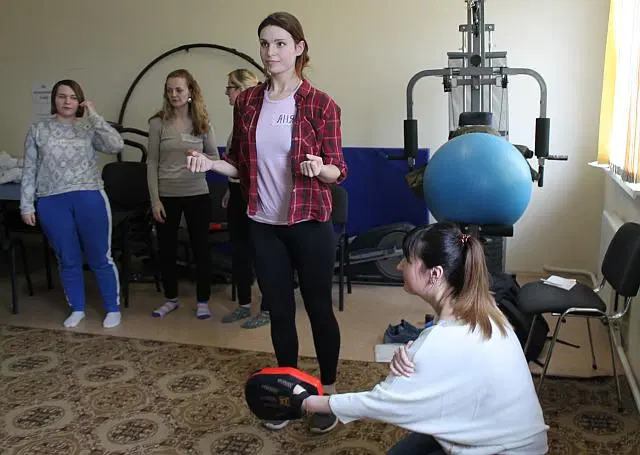Our Bodies, Our Wen-Do
By Hanna Liubakova for Transitions
With domestic violence rates in Belarus among the highest in Europe and few legal protections, some women are turning to self-defense classes.
On an early Saturday morning some 15 women gather in one of the ubiquitous,gray, three-story buildings on the outskirts of Minsk.
There are coffee and snacks to grab, and chairs are already evenly placed in a circle. The spacious room where we meet is a gym in its everyday life, but we aren’t here to get into shape.
The next two days will be part martial arts lessons, part support group.
This is the essence of Wen-Do: a method of self-defense and assertiveness training to empower women to fend off harassment and speak up for themselves.
Courses such as these are relatively new and not yet widespread. There are many reasons why the idea of women’s self-defense is not more popular in Belarus: a wide variety of gender-based stereotypes, a tendency to blame the victims of violence, and a persistent belief in “a strong man’s shoulder.” And yet every second woman suffers different forms of violence, with nearly every third being abused physically.
Wen-Do covers a wide variety of physical and verbal techniques. Women learn how to fight back and respond to wrist and arm holds and how to escape bear hugs and choke holds.
Far from being just about self-defense, Wen-Do also focuses on consent, awareness, and avoidance of threatening situations. We will gain these skills during the next two days.
The group members are all different. Tall and short. Blond and dark-haired. Students and professionals. We are in our 50s or just turned 16. We met just a moment ago, but already feel friendly toward each other.
But when Olga Laniewska, our trainer, suddenly asks us to shout, we stare at each other in confusion. It is a women-only course. But however safe and comfortable the atmosphere is, it is not easy to start screaming when you’re surrounded by near-strangers.
Olga urges us on:
“Attackers know perfectly well that women often feel too ashamed to react when they are sexually assaulted. But your voice is your weapon. Use it.”
This time, we don’t hesitate to shout.

